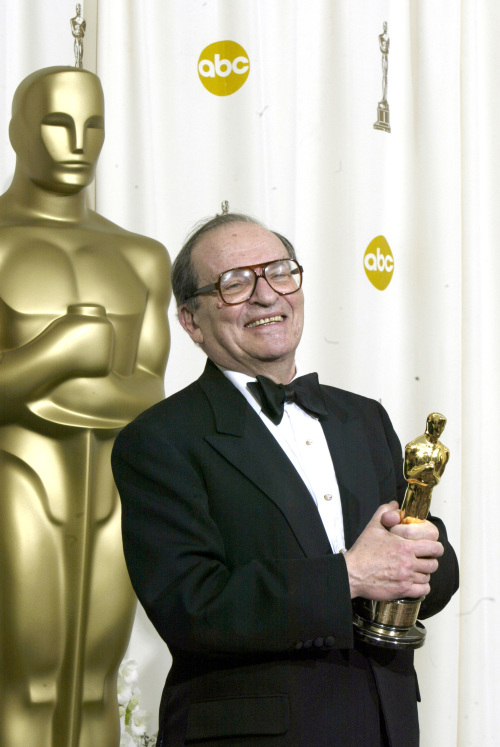LOS ANGELES ― I’d almost forgotten what an unabashed liberal Sidney Lumet had been until I read an essay by New York Post critic Kyle Smith, an unabashed conservative who has little good to say about Lumet’s signature work, seeing it as emblematic of the weak-kneed moral relativism of lefty do-gooders. Taking apart Lumet’s “12 Angry Men,” Smith dubs it an “ur-myth of liberal fantasy,” saying “one wonders how many young lawyers got into criminal defense with this film holding a central place in their moral foundations ― Bronx-born Supreme Court Justice Sonia Sotomayor cited it as a key influence ― and how many were later disabused of the notion that New York City jails are packed with innocents.”
Smith also takes a swipe at Lumet’s beloved “Serpico,” saying it “created an impression of all-pervasive wickedness and incurable rot in the city’s leading institutions. If the police can’t be trusted, who can? Nobody, decided the businesses and professionals who fled the city in the ‘70s.”
I can only imagine what Smith would have to say about Lumet’s earliest work in television, which was given short shrift in most of the obituaries when news surfaced of Lumet’s death Saturday at age 86. Long before he made “Network” and “Dog Day Afternoon,” Lumet cut his teeth directing TV dramas, but more important, he played an active role in helping to undermine the brutish Hollywood blacklist, which cost untold numbers of writers, actors and filmmakers their jobs simply because of their political beliefs.
Smith also takes a swipe at Lumet’s beloved “Serpico,” saying it “created an impression of all-pervasive wickedness and incurable rot in the city’s leading institutions. If the police can’t be trusted, who can? Nobody, decided the businesses and professionals who fled the city in the ‘70s.”
I can only imagine what Smith would have to say about Lumet’s earliest work in television, which was given short shrift in most of the obituaries when news surfaced of Lumet’s death Saturday at age 86. Long before he made “Network” and “Dog Day Afternoon,” Lumet cut his teeth directing TV dramas, but more important, he played an active role in helping to undermine the brutish Hollywood blacklist, which cost untold numbers of writers, actors and filmmakers their jobs simply because of their political beliefs.

In the early 1950s, Lumet was an in-house director on “Danger,” a murder-mystery drama, and “You Are There,” a show that featured historical reenactments of such events as the Salem witch trials and the fall of Troy. The shows’ producer, Charles Russell, an ardent liberal himself, decided to hire several blacklisted writers ― notably Walter Bernstein (“Fail Safe”) and Abraham Polonsky (“Body and Soul”) ― to pen the scripts, using fronts and pseudonyms to protect their identities. (The 1976 film “The Front,” written by Bernstein, stars Woody Allen as an unlikely front hired by a Bernstein-like writer.)
Lumet knew exactly what was happening, since there were never any writers in the office, rehearsal hall or TV studio. Lumet knew he had to keep his mouth shut. In Russell’s memoirs, he recalls telling Lumet for the first time that he was using blacklisted writers. “If it is revealed, it will come as a complete surprise to you ― understand?” Russell told him. Lumet replied: “I understand and I don’t want to know what other writers are doing scripts,” quickly adding, “but you got Bernstein working, haven’t you?”
Lumet once nearly got blacklisted himself, thanks to Counterattack, a crazed anti-Communist publication published by a business that accumulated names of alleged Communists and their sympathizers for the networks, clearing them for a fee. If you made the list, you were in trouble. One day, Lumet was named in a Counterattack article, which claimed he was an associate of known Communists as well as a member of the supposedly left-wing Group Theater.
The fact that Lumet, a child actor, was 12 when he was in the Group Theater didn’t seem to get him off the hook. He had to clear his name by meeting with Mel Block, whose toothpaste company sponsored “Danger”; Harvey Matusow, an ex-Communist Party member turned FBI informant; and Victor Riesel, a Hearst newspaper columnist who moonlighted as a clearance officer for blacklisted types who wanted to clear their names.
The sole damning evidence against Lumet was a photo in a monthly American Legion magazine that showed a host of people at a Communist Party meeting. As Walter Bernstein recounts in his memoirs:
“They looked at Lumet when he entered, looked again at the picture, and then Matusow turned back to Lumet. “Don’t get your (expletive) in an uproar,” he said genially. “You’re not the one.” “What about his wife?” Riesel asked, hoping for the best. “Maybe she’s there.” She wasn’t in the picture either. They had been told that a couple in the photograph were Lumet and his wife; this had been Counterattack’s evidence. Now they knew better, but no one apologized to Lumet for bringing him there. Matusow slapped him on the back and wanted him to know it was nothing personal. Lumet was free to work; he should go out and celebrate.”
I bet Lumet did. And he spent decades celebrating the idea that justice is for everyone in this country, not just the rich and the powerful. It’s a message that will make his films always seem as fresh as the day they were made.
By Patrick Goldstein
(Los Angeles Times)
(McClatchy-Tribune Information Services)






![[KH Explains] How should Korea adjust its trade defenses against Chinese EVs?](http://res.heraldm.com/phpwas/restmb_idxmake.php?idx=644&simg=/content/image/2024/04/15/20240415050562_0.jpg&u=20240415144419)











![[Today’s K-pop] Stray Kids to return soon: report](http://res.heraldm.com/phpwas/restmb_idxmake.php?idx=642&simg=/content/image/2024/04/16/20240416050713_0.jpg&u=)